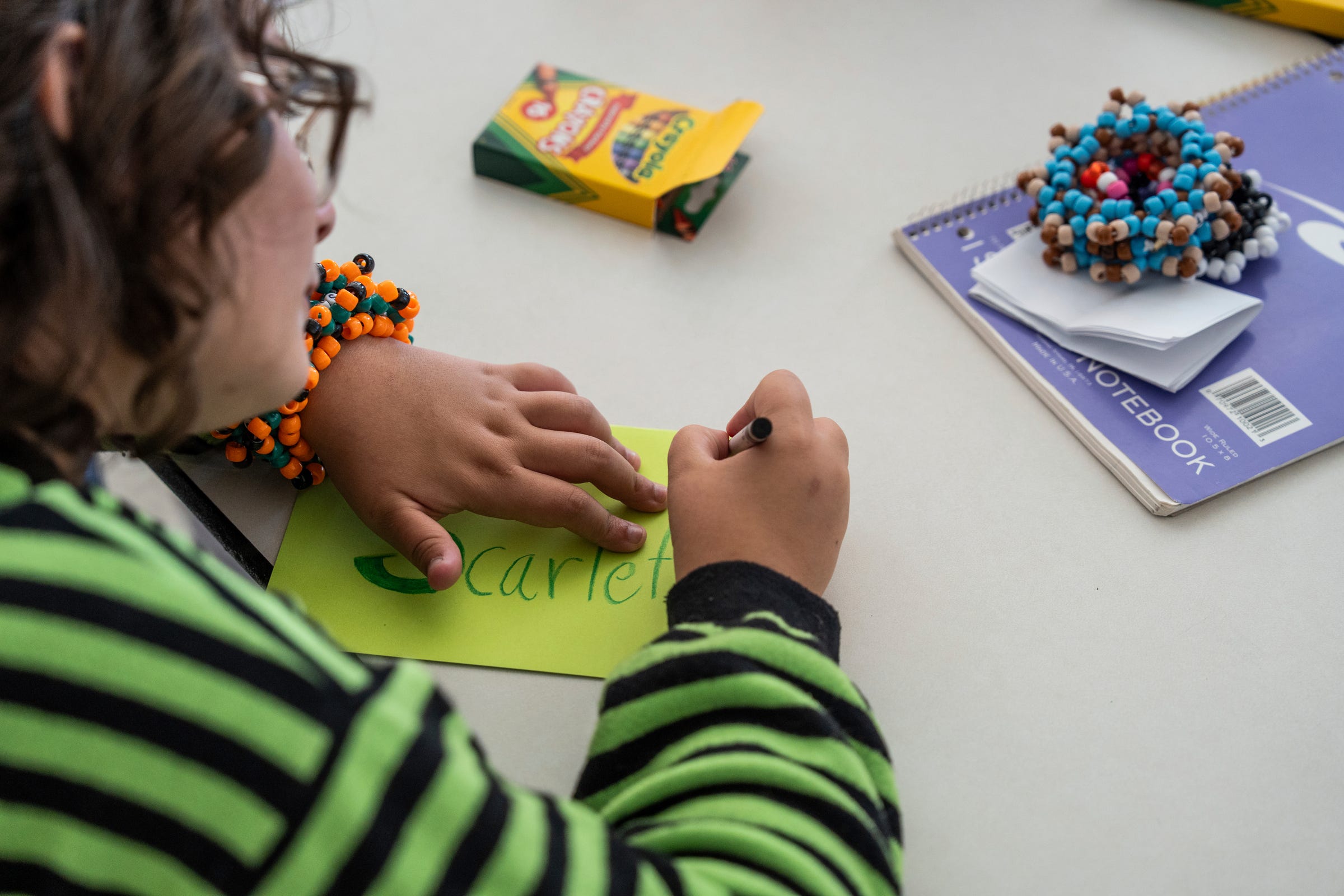Education
Michigan 3rd Graders Show Decline in Reading Proficiency on M-STEP

Michigan’s third-grade students have demonstrated a concerning decline in reading proficiency, as evidenced by the latest results from the state’s M-STEP assessment. Released recently, the scores reveal that over 60% of third-graders did not achieve proficient levels on the reading tests. Specifically, 38.9% of students scored either proficient or advanced during tests conducted in the spring of 2025, a slight decrease from 39.6% in 2024.
The M-STEP assessment is designed to measure students’ academic performance across various subjects, including English language arts. The latest results highlight ongoing challenges in literacy among younger students in Michigan, raising concerns about educational equity and support.
Continuing Trends in Reading Scores
The decline in reading proficiency has sparked discussions among educators and policymakers regarding the factors contributing to this trend. The data indicates a persistent struggle for many students to meet the expected standards. As third grade is often viewed as a pivotal year for literacy development, these scores could have long-term implications for students’ academic journeys.
Lily Altavena, an award-winning education reporter for the Free Press, has been closely examining the systemic issues that contribute to educational inequities across the state. Her reporting sheds light on the challenges faced by students and the need for targeted interventions to support literacy development.
Implications for Future Education Policy
The M-STEP results may prompt further analysis by state education officials and stakeholders. With more than 60% of third-graders not reaching proficiency, there is an urgent need for enhanced literacy programs and resources. Policymakers will likely consider various strategies to address these declining scores, including increased funding for educational initiatives and professional development for teachers.
The education community is closely monitoring these developments, with many advocating for comprehensive reforms aimed at improving reading outcomes for all students. As discussions continue, it is crucial to ensure that every child has access to the resources and support necessary to achieve their full potential.
For ongoing updates and insights into education in Michigan, contact Lily Altavena at [email protected] or reach out to Kristi Tanner at [email protected].
-

 Technology4 months ago
Technology4 months agoDiscover the Top 10 Calorie Counting Apps of 2025
-

 Health2 months ago
Health2 months agoBella Hadid Shares Health Update After Treatment for Lyme Disease
-

 Health3 months ago
Health3 months agoErin Bates Shares Recovery Update Following Sepsis Complications
-

 Technology3 weeks ago
Technology3 weeks agoDiscover 2025’s Top GPUs for Exceptional 4K Gaming Performance
-

 Technology2 months ago
Technology2 months agoElectric Moto Influencer Surronster Arrested in Tijuana
-

 Technology4 months ago
Technology4 months agoDiscover How to Reverse Image Search Using ChatGPT Effortlessly
-

 Technology4 months ago
Technology4 months agoMeta Initiates $60B AI Data Center Expansion, Starting in Ohio
-

 Technology4 months ago
Technology4 months agoRecovering a Suspended TikTok Account: A Step-by-Step Guide
-

 Health4 months ago
Health4 months agoTested: Rab Firewall Mountain Jacket Survives Harsh Conditions
-

 Lifestyle4 months ago
Lifestyle4 months agoBelton Family Reunites After Daughter Survives Hill Country Floods
-

 Technology3 months ago
Technology3 months agoUncovering the Top Five Most Challenging Motorcycles to Ride
-

 Technology4 weeks ago
Technology4 weeks agoDiscover the Best Wireless Earbuds for Every Lifestyle



















